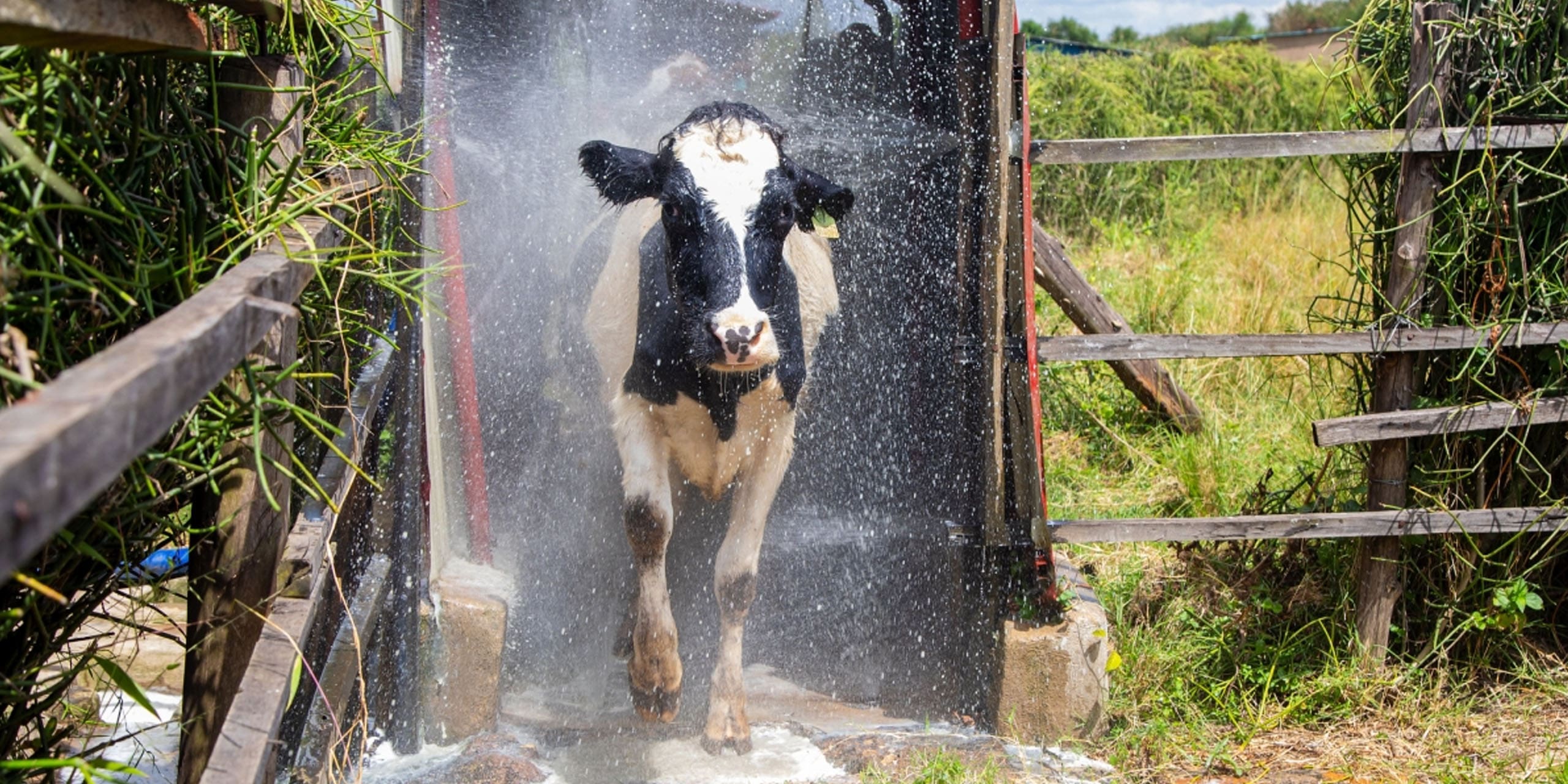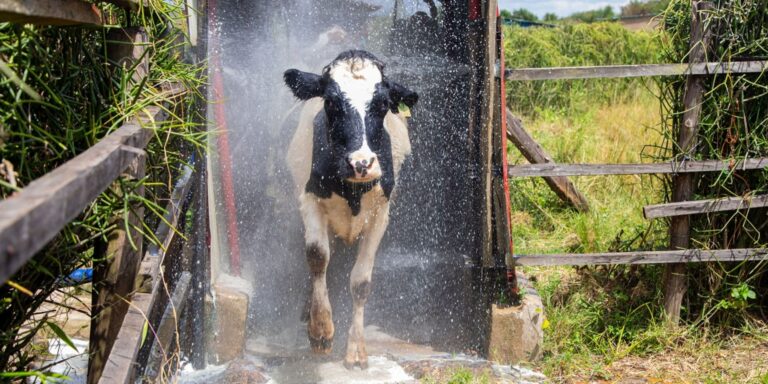In the context of global agriculture, the importance of efficient and sustainable animal health systems cannot be overstated.
Animal health is crucial not only for ensuring food security but also for safeguarding public health and supporting the livelihoods of millions, particularly in rural areas.
Public-Private Partnerships (PPPs) have emerged as a vital strategy for enhancing the delivery of veterinary services and improving overall animal health systems.
By combining the strengths of both the public and private sectors, PPPs can address various challenges, including limited resources, inadequate infrastructure, and the need for innovation in veterinary services.
In animal health, PPPs involve the joint efforts of government agencies, private veterinary service providers, pharmaceutical companies, non-governmental organisations (NGOs), and other stakeholders.
These partnerships leverage the strengths of each sector to improve the efficiency, accessibility, and sustainability of veterinary services.
The rationale behind PPPs in animal health systems is rooted in the recognition that neither the public nor the private sector alone can address all challenges. The public sector, responsible for setting regulations, ensuring public health, and providing basic services, often lacks the resources and technical expertise required for comprehensive animal health management.
Conversely, the private sector can bring innovation, efficiency, and investment to the table but may be limited in its capacity to reach underserved areas or comprehensively address public health concerns.
PPPs, therefore, offer a mechanism to pool resources, share risks, and achieve mutually beneficial outcomes.
PPPs can significantly improve the delivery and accessibility of veterinary services, particularly in remote and underserved areas. For instance, in Kenya, PPPs have been instrumental in expanding the reach of veterinary services to pastoralist communities.
The collaboration between government agencies and private veterinary practitioners has enabled the establishment of mobile clinics, providing essential services such as vaccinations, disease diagnosis, and treatment to livestock in hard-to-reach areas.
By leveraging the private sector’s flexibility and efficiency, these partnerships ensure that more farmers can access quality veterinary care.
One of the key advantages of PPPs is their ability to mobilise resources from both the public and private sectors. This not only reduces the financial burden on the government but also ensures that sufficient resources are available for comprehensive animal health programs.
In India, for example, the National Dairy Development Board (NDDB) has implemented several PPPs to enhance veterinary services for dairy farmers.
A notable example is the partnership between NDDB and private veterinary service providers to deliver artificial insemination (AI) services. This partnership has expanded AI services to remote areas, improving the genetic quality of dairy cattle and increasing milk production.
The private sector’s involvement has also led to the adoption of new technologies and practices, contributing to the overall sustainability of the dairy sector.
Innovation and Technology Transfer
The private sector is often at the forefront of innovation, particularly in developing new veterinary drugs, vaccines, and diagnostic tools. PPPs facilitate the transfer of these innovations to the public sector, enabling more effective disease control and prevention strategies.
In Brazil, the partnership between the Ministry of Agriculture and private pharmaceutical companies has led to the successful implementation of vaccination campaigns against diseases such as foot-and-mouth disease.
The private sector’s role in developing and distributing vaccines has been crucial in reducing the incidence of the disease and improving overall animal health in the country.
PPPs play a crucial role in capacity building and knowledge sharing in the veterinary sector. By partnering with private sector organisations, governments can leverage technical expertise and access training programs that enhance the skills of veterinary professionals and para-veterinarians.
For example, the Government of Rwanda can collaborate with international NGOs and private veterinary service providers to train community-based animal health workers (CAHWs).
These trained workers can then be equipped with the knowledge and tools needed to provide basic veterinary care in rural areas, thereby complementing formal veterinary services.
Ensuring the safety and efficacy of veterinary services and products requires robust regulation and quality control. PPPs can enhance regulatory frameworks by engaging private sector stakeholders in developing and enforcing standards.
For instance, in the European Union, PPPs have been instrumental in establishing comprehensive traceability systems for livestock, which help monitor animal health and ensure compliance with food safety regulations.
Collaborative efforts between public and private entities can create strong regulatory environments that safeguard both animal and public health.
The recent launch of the “Veterinary Sanitary Mandate” scheme by the Ministry of Agriculture and Animal Resources (MINAGRI) in Rwanda marks a significant step towards enhancing the delivery of veterinary services in the country.
By involving private operators in providing essential veterinary services while maintaining government oversight to ensure quality and compliance, Rwanda aims to boost the efficiency, accessibility, and sustainability of these services, particularly in rural and underserved areas.
This approach aligns well with a more nuanced perspective on the privatisation of agricultural extension services, which advocates moving beyond a binary choice between public and private models.
Instead, it emphasises the potential for integrating various sectors—public, private (both for-profit and not-for-profit), and the third sector, which includes farmers’ groups, associations, paraprofessionals, and community-appointed grassroots agents. Such an integrated approach creates a collaborative framework where each sector can contribute its unique strengths.
Public extension services, for example, can offer broad accessibility and standardisation, while private for-profit entities can drive innovation and efficiency through competition.
Not-for-profit organisations are particularly effective in reaching underserved communities and fostering long-term relationships with farmers. Meanwhile, the third sector ensures that local knowledge, traditions, and community needs are respected and incorporated into extension practices.
Leveraging digital tools and technologies can significantly improve the efficiency and transparency of the sanitary mandate scheme. Developing a centralised digital platform for disease reporting, vaccine inventory management, and service delivery monitoring can help streamline operations.
Digital tools can also facilitate real-time data sharing between private veterinarians and government authorities, enabling swift responses to disease outbreaks and enhancing overall disease surveillance.
Strengthening community-based animal health workers (CAHWs) and integrating them into the scheme can enhance outreach and ensure timely disease reporting. Engaging community leaders and leveraging local governance structures can also facilitate greater acceptance and collaboration from the community.
The successful implementation of the sanitary mandate scheme in Rwanda requires a coordinated and comprehensive approach that involves policy support, capacity building, resource allocation, community engagement, sustainable financing, digitalization, and continuous monitoring.
By empowering private veterinarians to take on roles traditionally played by government officers, Rwanda can improve the efficiency, reach, and quality of its animal health services, ultimately contributing to better livestock health, increased productivity, and improved livelihoods for farmers.
The writer is a Senior Advisor at Dedicated Agri Services Private Limited, Kigali, Rwanda.




